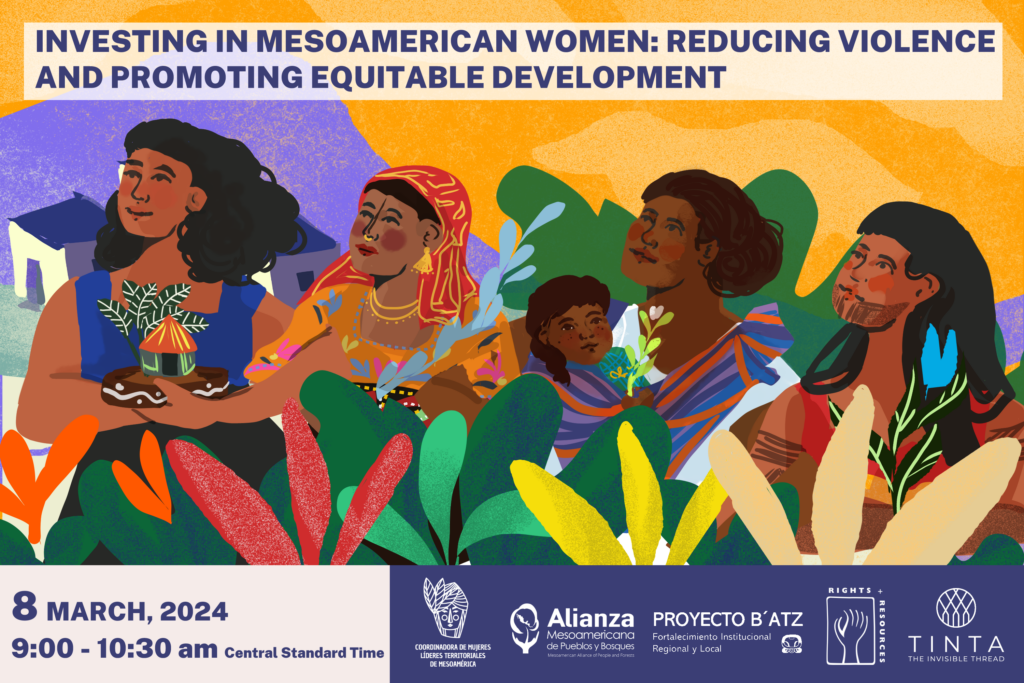November 02, 2023
This blog was originally written in English and automatically translated using artificial intelligence.
Climate change disproportionately affects women, especially those whose livelihoods depend directly on land and natural resources management. Women also face limitations in accessing land, forests, and financing to grow their community initiatives. Under the theme of this year’s International Women’s Day, “Investing in Women, Accelerating Progress” a webinar on the matter was organized by the Proyecto B’atz, the Rights and Resources Initiative, the Invisible Thread (TINTA), the Mesoamerican Alliance of People and Forests as well as the Coordinator of Women Territorial Leaders of Mesoamerica.
The online event on investing in Mesoamerican women to reduce violence and promote equitable development highlighted the important contributions that Mesoamerican women make to our Indigenous and community economies, and how this can be a sustainable model for reducing the inequalities that women and girls face. It also addressed the needs and challenges of direct climate finance faced by women-led initiatives in Mesoamerica and how we can move forward on these key issues.
Please find here some notable key quotes from the event, which took place on International Women’s Day 2024:
